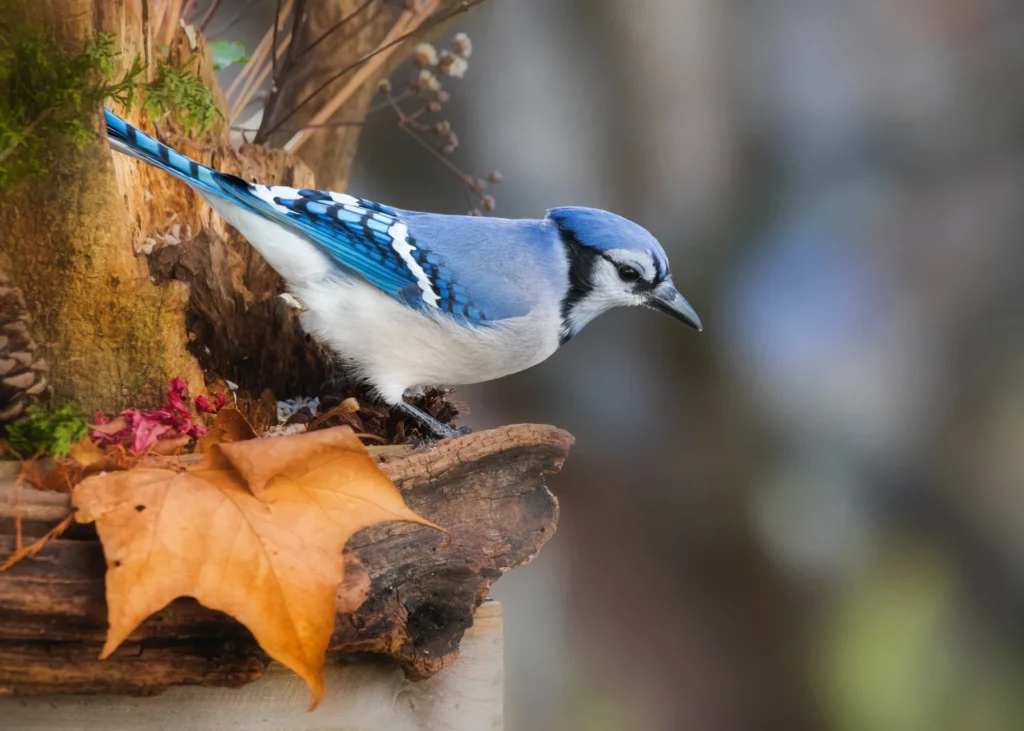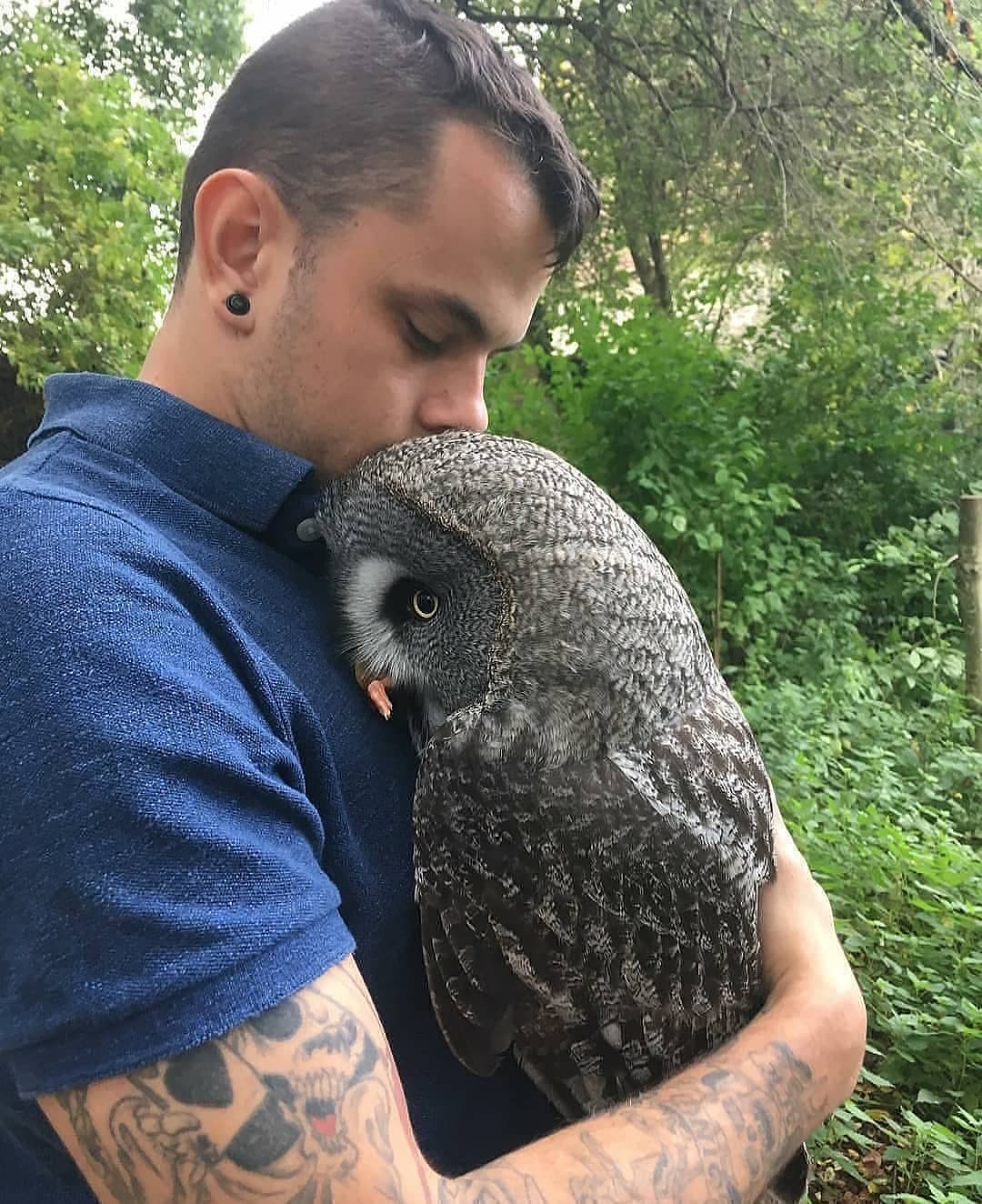The blue jay is a common and vibrant species of bird found across North America. If you are a bird enthusiast, your diet and behavior may arouse your curiosity. Blue jays are known for their loud calls, their intelligence, and their ability to mimic other birds. But do blue jays eat other birds?
Yes, they eat birds. Blue jays are omnivorous. They eat both plants and animals. However, they do not frequently eat birds. Primarily blue jays fed on nuts, fruits, seeds, and insects. They are especially fond of acorns, which they store in caches for later use.
So, Roll on to learn more about the diet of this quirky and beautiful blue bird!
Do Blue Jays Eat Other Birds?
Blue jay birds are beautiful and belong to the Corvid family. They are omnivores.
These birds are primarily opportunistic feeders, which means they can eat whatever is available and easy to get. They mostly eat seeds, nuts, fruits, and insects, but they will also eat eggs, nestlings, and sometimes even adult birds of smaller species. However, it is quite unusual and makes up only a tiny portion of their diet.
So, while blue jays do eat birds occasionally, they are not the only predators of these small animals. Other birds also hunt smaller birds, such as owls and falcons. Blue jays are more likely to eat other birds when food is scarce or when they find an easy target. But generally, they eat plant-based food.
Because plant-based food is more available and healthier to access in nature, you will be amazed to know that only 1 percent of bluejays were found to eat birds. On the other hand, compared to insects and plants, that is 22 percent to 78 percent, which shows they mostly rely on plants in terms of food.
When Do Blue Jays Eat or Attack Other Birds?
Blue jays are known for attacking other birds. Especially during their breeding time, they become more aggressive. However, it is essential to understand the circumstances under which blue jays may eat or attack other birds.
1. Territorial Disputes
They are very territorial when it comes to defending their nesting area. During this time, they may become aggressive towards other birds that venture too close to their territory, including smaller songbirds.
2. Food Competition
While blue jays have a diverse diet, they can be opportunistic scavengers. In situations where food resources are scarce, they may resort to attacking other birds to claim their food.
3. Nestling Predation

Blue jays have been known to prey upon the eggs and nestlings of other bird species. This behavior is more commonly observed when they are in need of additional food sources to sustain themselves or their own offspring.
4. Mobbing Behavior
This bird is known for their mobbing behavior, which involves a group of birds attacking a perceived threat. They may target larger birds, such as hawks or owls, to drive them away from the vicinity of their nest.
Blue Jay Foods
Blue jays are attractive birds known for their vibrant blue plumage and unique crests. They eat many types of food to survive. Here are some of the primary food sources for blue jays:
1. Insects
The blue jay’s diet typically consists of various insects. These insects consist of a bigger portion of blue jay’s diet, such as beetles, caterpillars, cicadas, grasshoppers, dragonflies, and spiders. They are known to hunt these small creatures in trees or on the ground.
2. Fruits
Blue jays relish a wide range of fruits, including berries, cherries, grapes, and apples. They play a crucial role in seed dispersal as they consume fruits and carry the seeds to different locations.
3. Nuts and Seeds

Blue jays have a particular fondness for nuts and seeds. They have strong beaks that can crack open acorns, walnuts, and hickory nuts. Additionally, they readily consume sunflower seeds, corn, and other birdseed.
4. Eggs and Nestlings
While not a significant part of their diet, blue jays raid the nests of other birds to consume eggs or nestlings. This behavior is relatively rare and typically occurs under specific circumstances.
How Do You Keep Blue Jays From Eating Baby Birds?
If you have the desire to protect baby birds in your yard from bluejays, here are a few measures you can take:
1. Provide Adequate Cover
Create dense vegetation areas with shrubs and trees where small birds can seek refuge from predators. Thick foliage and strategically placed birdhouses can provide effective hiding spots.
2. Install Predator Guards
Use predator guards on your birdhouses or nest boxes to scare off blue jays from accessing the nests. These guards can be metal baffles or cages that prevent larger birds from reaching the nest.
3. Remove Food Sources
Blue jays are attracted to areas where food is abundant. Limit their access to bird feeders by using caged feeders or selecting designs that exclude larger birds.
4. Chemical-based Bird Repellents
It could effectively keep the birds away from their nest. However, they can have unintended consequences on both birds and the environment. So, it will not be wise to use chemicals.
Moreover, it is important to maintain a diverse bird-friendly habitat that attracts a wide range of bird species. A diverse ecosystem can help dilute territorial disputes and reduce aggression between birds.
Do Blue Jays Steal Other Bird’s Nests?
Blue jays are opportunistic birds. They take advantage of abandoned nests. They steal other birds’ nests. However, the act of stealing nests is relatively unusual to them.
However, they do not steal very often. Blue jays eat whatever they can find, including seeds, nuts, fruits, insects, and sometimes small vertebrates. They steal from other birds’ nests for food, eggs, chicks, nest materials and. Therefore, they raid the nests because of their aggression also.
Moreover, they are not the only birds that steal nests. There are some more bird species, like ravens, crows, and magpies, which also steal food from the nests of other birds.
Conclusion
The blue jay is a loud, aggressive bird that often pushes other birds out of its territory. As they are carnivores, blue jays can eat almost anything, including birds.
However, they do not eat birds regularly. They eat birds if there is any shortage of food. Rather most of their diet consists of seeds, insects, fruits, etc. Understanding the habits and diet of bluejays can help you protect any nests of other birds in your backyards.

